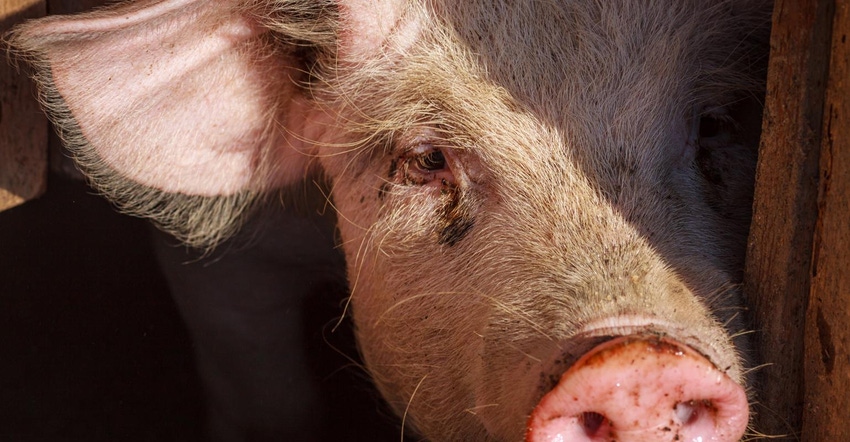Harbin Institute signals creation of ASF vaccine
While research institute in China says it has created African swine fever vaccine, development may not "change the horizon" for commercial vaccine.

The National African Swine Fever Specialty Laboratory of the Harbin Veterinary Research Institute of the Chinese Academy of Agricultural Sciences announced March 1 that it has created a live attenuated vaccine against African swine fever (ASF), and systemic laboratory research has shown the vaccine to have good safety and effectiveness for domesticated pigs.
Related research results, titled "A Seven-gene-deleted African Swine Fever Virus Is Safe & Effective as a Live Attenuated Vaccine in Pigs," were published online in Science China Life Sciences, a translated announcement from the Harbin Institute said.
The institute said it considers gene-deleted live attenuated vaccines as "the most promising technical strategy for the development of an ASF vaccine," according to the announcement.
The researchers used China's first ASF virus isolate, Pig/HLJ/2018, as the backbone and constructed a series of recombinant viruses with different gene deletions using homologous recombination technology, according to the announcement.
Through systematic pathogenicity, immunogenicity and immunoprotective tests in pigs, a virus with seven gene deletions (HLJ/18-7GD) was selected to meet the safety standards for live attenuated vaccines, the Harbin Institute said.
According to the announcement, even after HLJ/18-7GD was inoculated to pigs at the highest dose, the vaccine virus could not replicate in parenchymal organs, did not produce viremia and replicated only limitedly in some lymph nodes. The vaccine strain was completely cleared by the body in about two weeks and could not be sustained in the body, the researchers said. Successive generations showed no risk of virulence reversion.
In addition, the vaccine was shown to be safe for pregnant sows. Vaccination in the early, middle and late stages of pregnancy did not cause abortion. The rate of piglets born after immunization was no different from the non-immunized control group, the researchers said.
The research team said it showed that the vaccine strain can be efficiently cultured in the primary bone marrow cells of specific-pathogen-free pigs and that at least 200,000 vaccines can be prepared from the primary cells of a healthy piglet, which is fully equipped for large-scale production.
According to the Harbin Institute announcement, "The vaccine is currently the most promising vaccine for industrial application and will provide important technical means for the effective prevention and control of African swine fever in China and related countries."
More work needed
After reviewing the paper, Dr. Paul Sundberg, executive director of the Swine Health Information Center, told Feedstuffs that there are still "a lot of issues that need to be addressed before this [development] leads to a vaccine," including the utility of this virus to stimulate immunity against the circulating strain, the possibility of having a "carrier state" of wild virus after vaccination and the lack of being able to differentiate vaccine from wild virus.
This is a report of "a good attempt at vaccine progress, but it won’t change the horizon for there being a commercially available safe and effective vaccine," Sundberg said, noting that such a commercial vaccine is still, "realistically, years away."
At the Midwest meetings of the American Society of Animal Science and American Dairy Science Assn., Dr. Clayton Johnson with Carthage System said such a live-attenuated vaccine "could have a place in endemic regions" but probably wouldn't meet regulatory standards for approval in the U.S.
The published research can be found here.
About the Author(s)
You May Also Like



